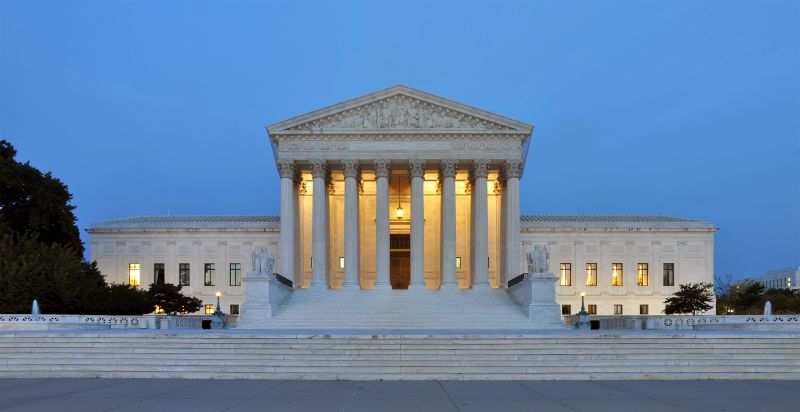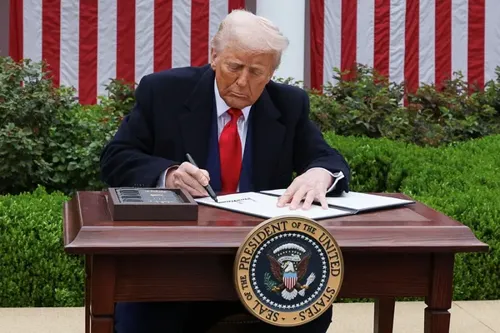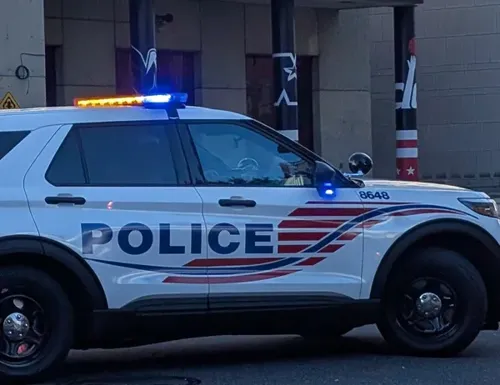Supreme Court's Response to Trump’s Birthright Citizenship Order Sparks Fear Among Immigrant Communities
The Supreme Court’s decision not to immediately block former President Donald Trump’s executive order challenging automatic birthright citizenship has sent waves of concern through immigrant communities across the United States. Although the June 27 ruling does not change the current citizenship status of anyone born in the country, it allows lower federal courts 30 days to review the legality of the order. In response, immigration advocates quickly filed a class-action lawsuit seeking to prevent the order from taking effect.
Under the executive order, babies born in the U.S. would no longer automatically receive citizenship unless their parents are U.S. citizens or lawful permanent residents. Importantly, the order is not retroactive, meaning it would only impact children born after it is legally enforced, if allowed by the courts.
Among the plaintiffs is “Liza,” a Russian-born graduate student in Texas whose baby was born after Trump issued the directive. Her husband, who has applied for asylum in the U.S., fled Russia due to political concerns. Liza has been granted anonymity by the federal courts to protect her status. She shared that she is afraid to register her child’s birth with the Russian embassy, fearing it could jeopardize their immigration case. Her child is currently protected under a preliminary injunction, but she expressed anxiety over what the court’s next steps might bring.
Speaking after the Supreme Court’s ruling, Liza said, “Thankfully our baby was born healthy and happy, but we remain worried even now that one day the government will take away our baby’s citizenship.” She added that she grieves for other families whose children aren’t protected under the injunction and are now left more uncertain about their futures.
In Denver, the Colorado Immigrant Rights Coalition rushed to reassure immigrant families that the Supreme Court's ruling does not change the law immediately. Raquel Lane-Arellano, a spokesperson for the coalition, said many expectant mothers are fearful, even though the legal status quo remains unchanged. “It is really scary for people who are having children right now, that someone would want to take away this fundamental right,” she said.
The right to birthright citizenship is enshrined in the 14th Amendment of the U.S. Constitution, which affirms that nearly anyone born on American soil is automatically a U.S. citizen. The only existing exception applies to children of foreign diplomats, a precedent the Supreme Court has previously upheld. Still, Trump’s attempt to reinterpret this fundamental right has stirred national concern, especially among those who expected the court to decisively reaffirm the constitutional guarantee.
The Supreme Court's decision now places the responsibility on lower courts to determine the legality of Trump’s directive in the coming weeks. Conchita Cruz, co-executive director of the Asylum Seeker Advocacy Project, described the day as “sad” for those who believe in the U.S. Constitution and the rights of American-born children. “It is a confusing moment for immigrant families who are unsure how this decision could affect them,” she said.
Trump’s order, one of his first actions after returning to the White House, states that children born to individuals visiting on tourist, student, or work visas—or those who are undocumented—would no longer be granted citizenship at birth. Children born to U.S. citizens or green card holders would not be affected.
Immigration advocates were shocked the Supreme Court didn’t reaffirm earlier rulings upholding birthright citizenship. Instead, the decision gives lower courts room to weigh the constitutional merit of Trump’s order. If implemented, the policy could affect an estimated 255,000 babies born each year in the United States, according to data from the Migration Policy Institute.
Legal experts have raised concerns that the order could create a generation of stateless individuals—children born in the U.S. who are denied citizenship in both their birth and ancestral countries.
New Jersey Attorney General Matt Platkin welcomed the fact that the Supreme Court acknowledged the appropriateness of nationwide injunctions to prevent harm to affected individuals. He pledged to keep fighting the order in district court. “We welcome the opportunity to continue making our case before the district court, particularly because the executive order will not take immediate effect,” Platkin stated. “We are confident that this flagrantly unconstitutional order will remain blocked by the courts.”
Trump has long advocated for hardline immigration policies and made birthright citizenship a focus during both his campaigns. He has also pledged to deport 1 million people annually, and by ending automatic citizenship, federal authorities could more easily target entire families for removal. Historically, undocumented parents of American-born children have often been allowed to remain in the country, thanks to the citizenship status of their children.
Now, with the courts set to decide whether the 14th Amendment’s protections can be rolled back by executive order, immigrant families across the U.S. face a period of legal uncertainty—and deep emotional stress—as they await a final ruling on a fundamental question of American identity.





COMMENTS (0)
Sign in to join the conversation
LOGIN TO COMMENT